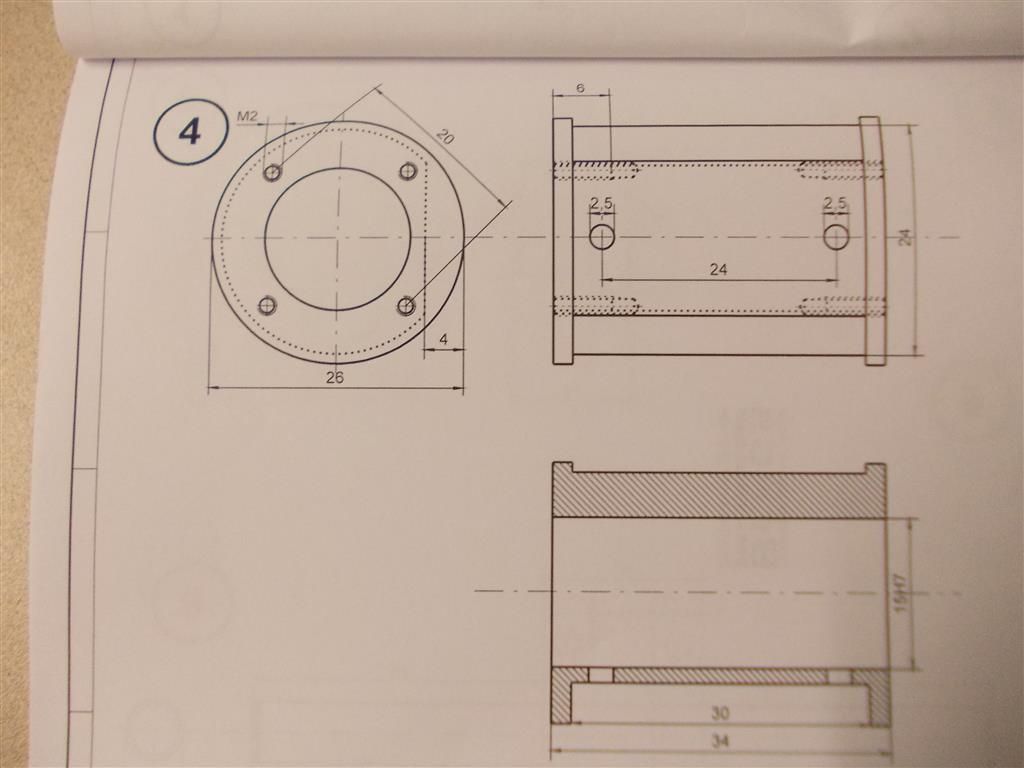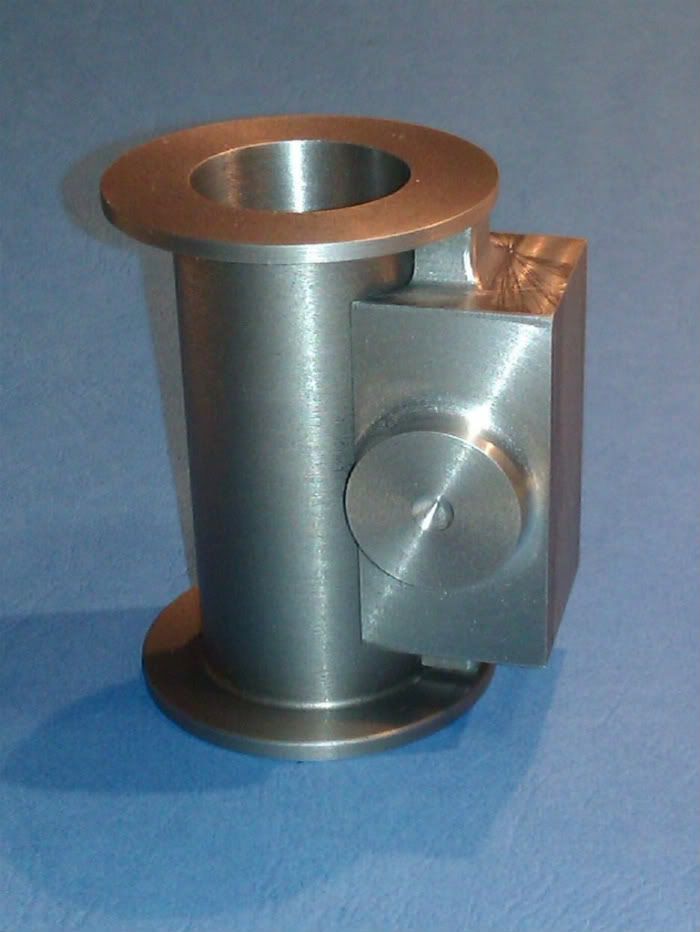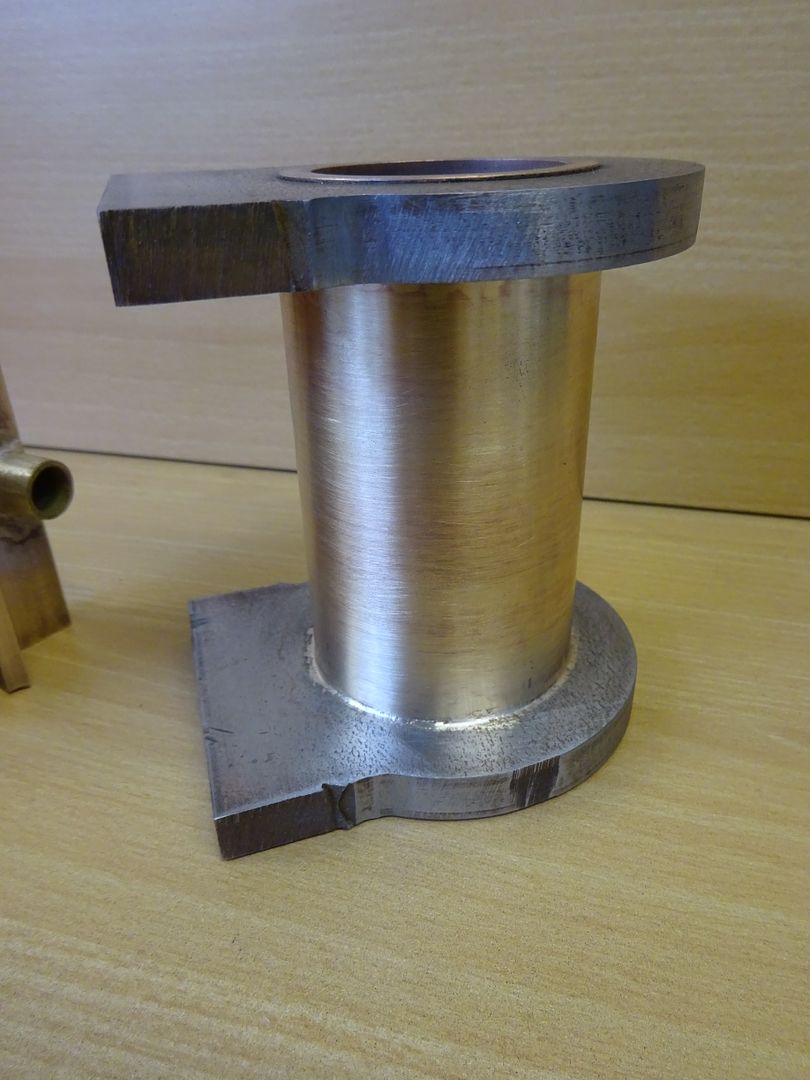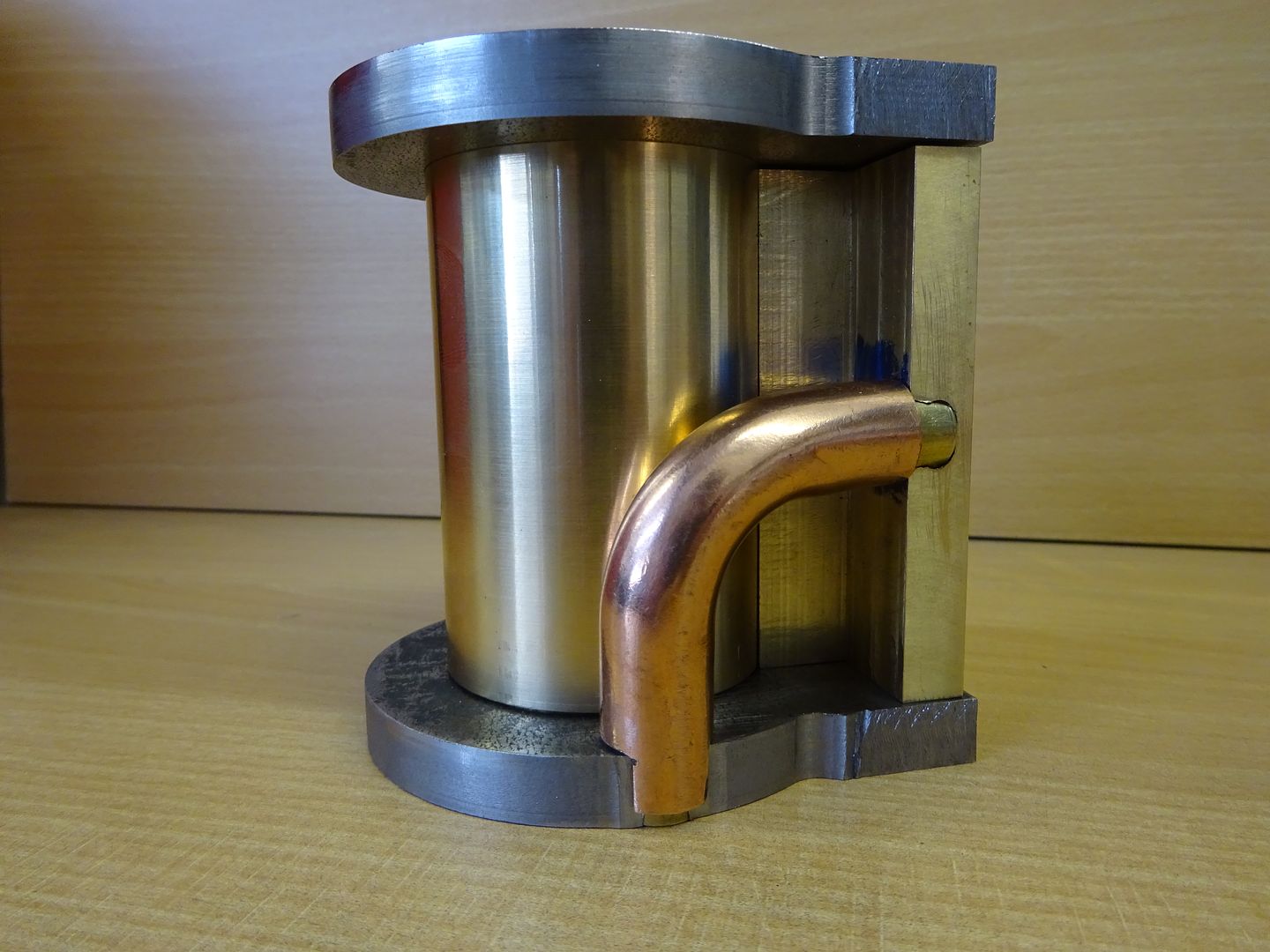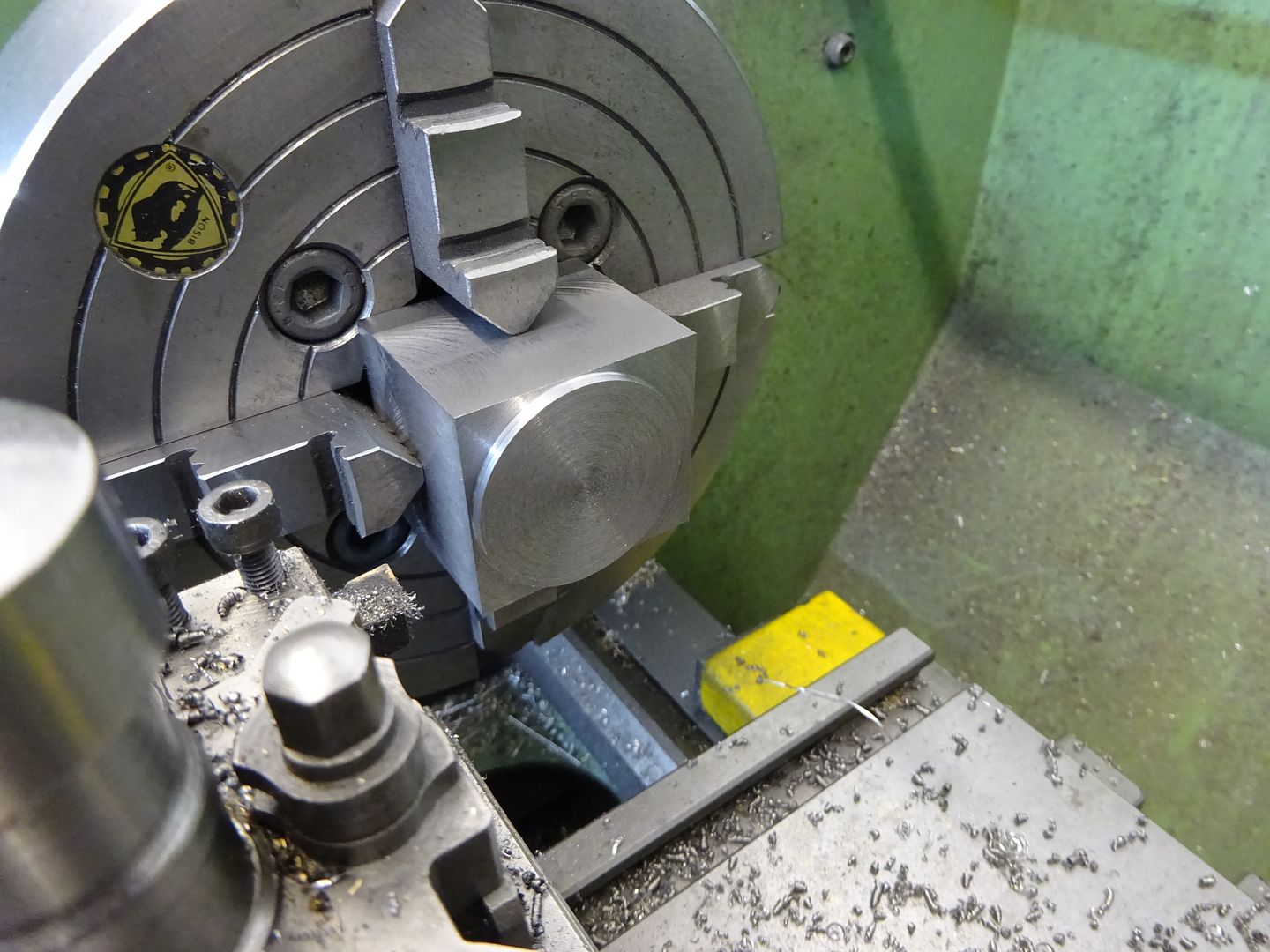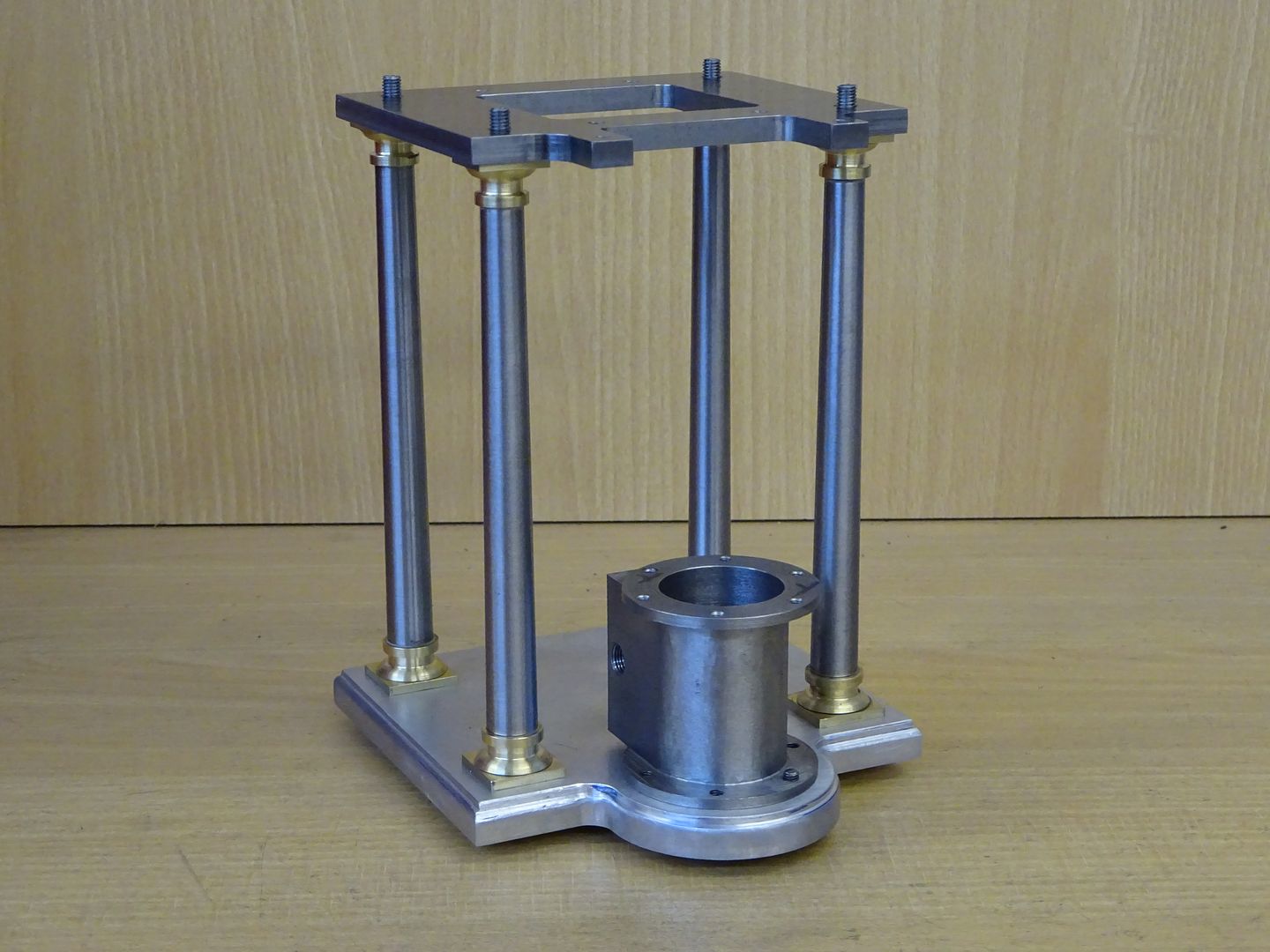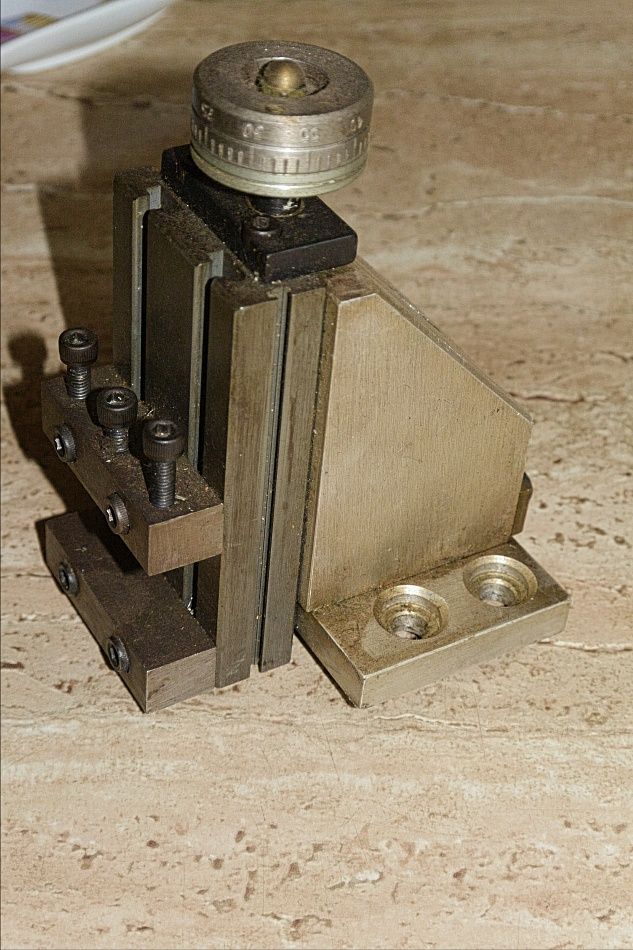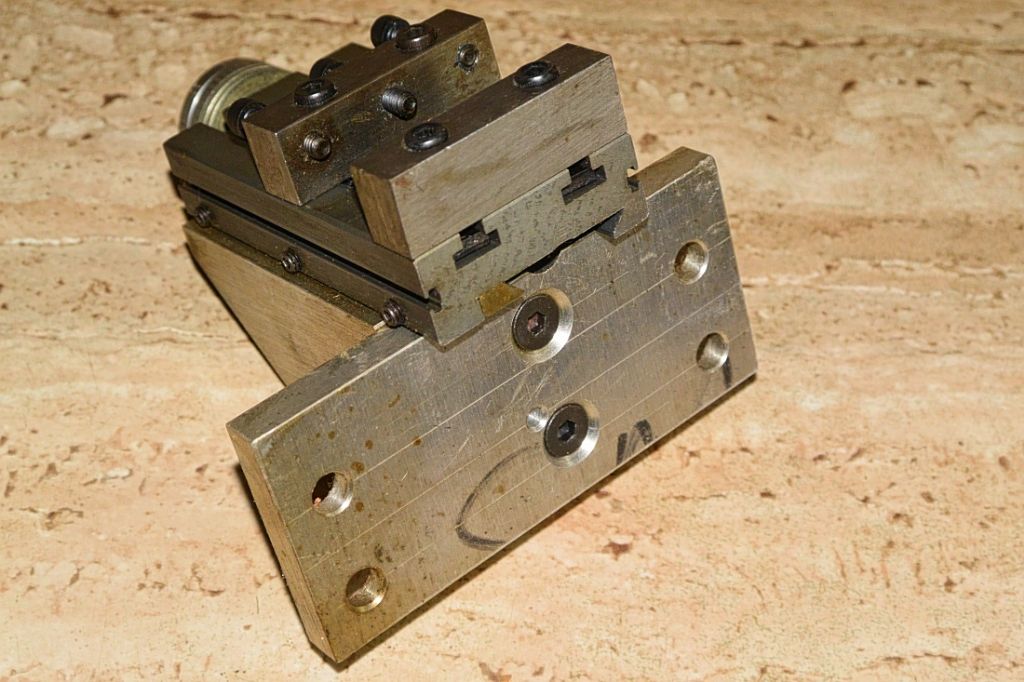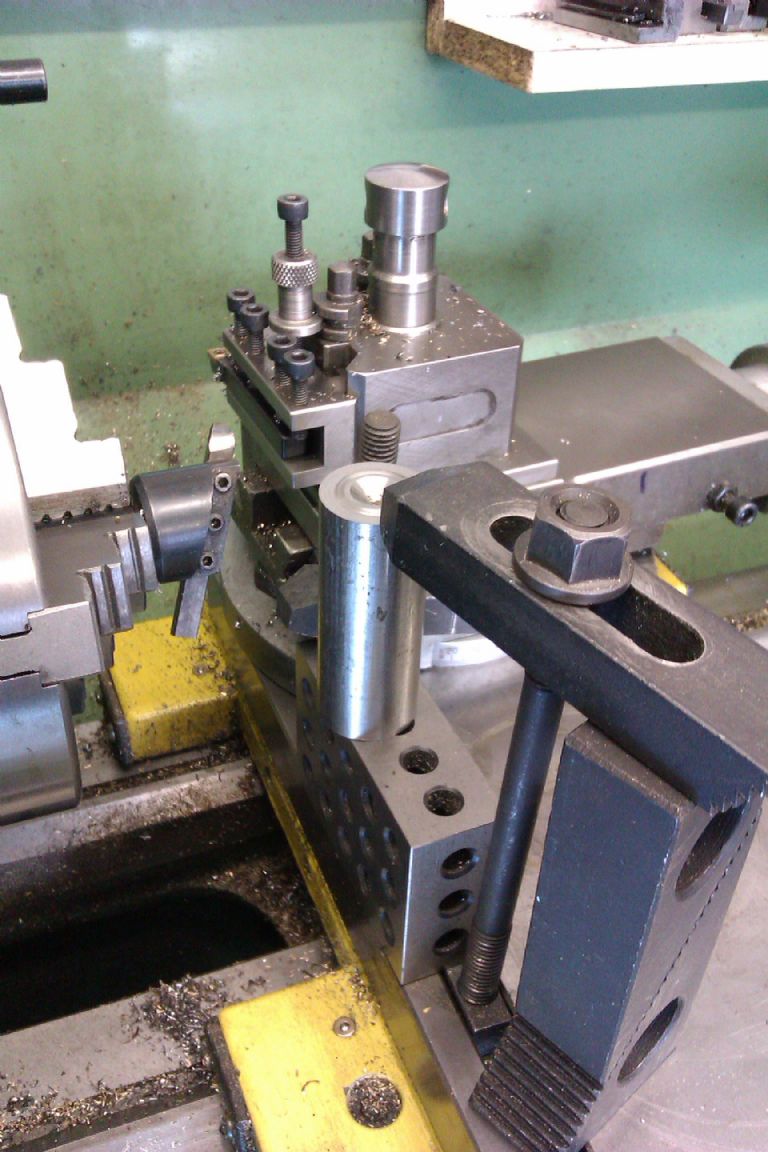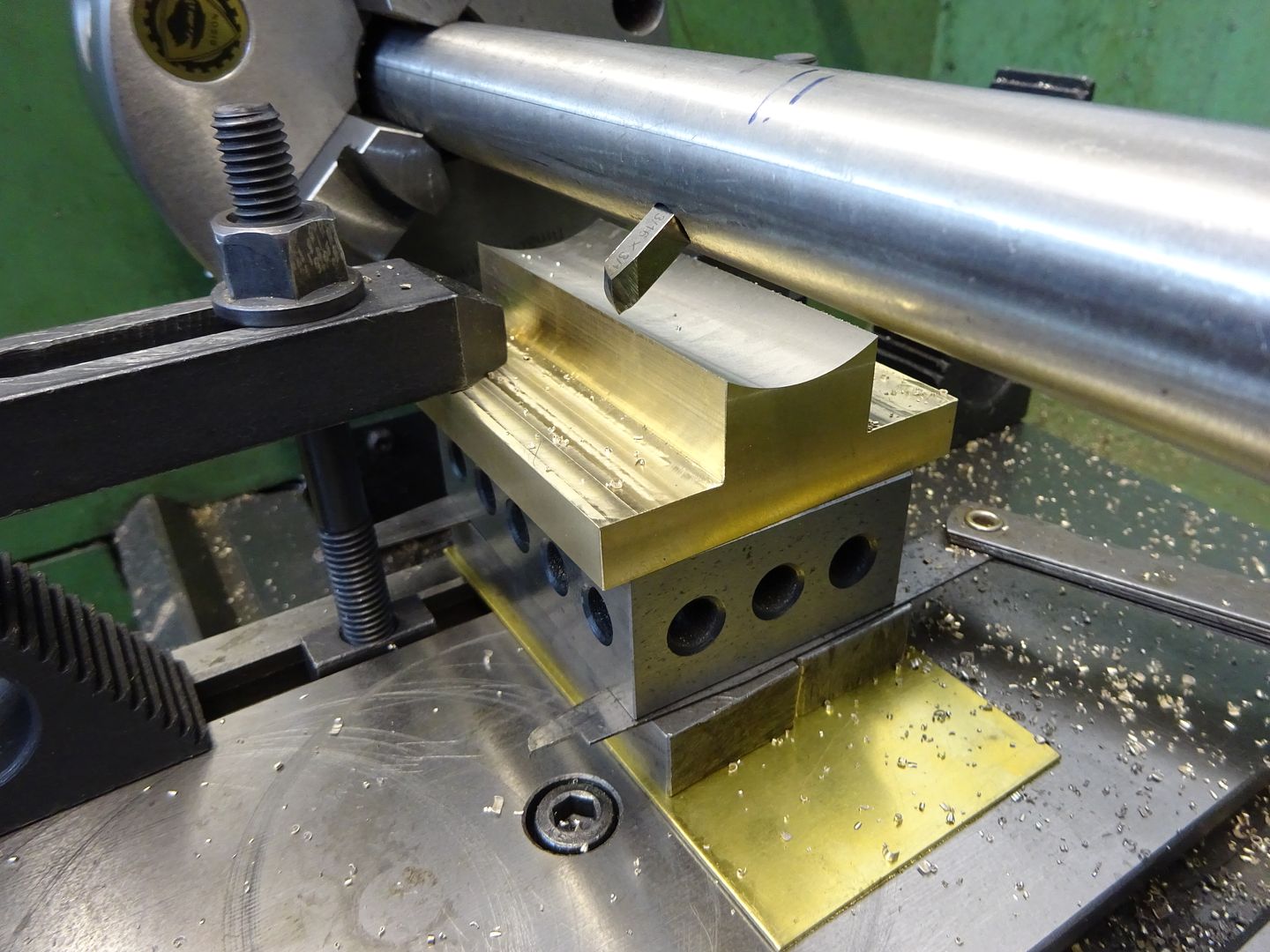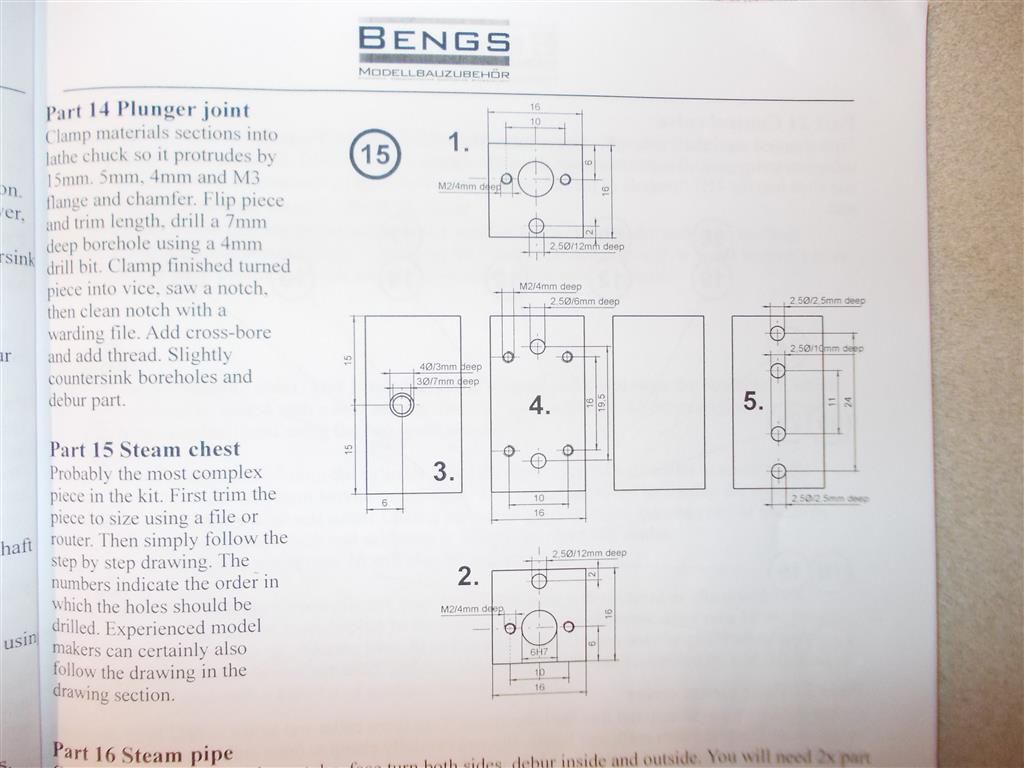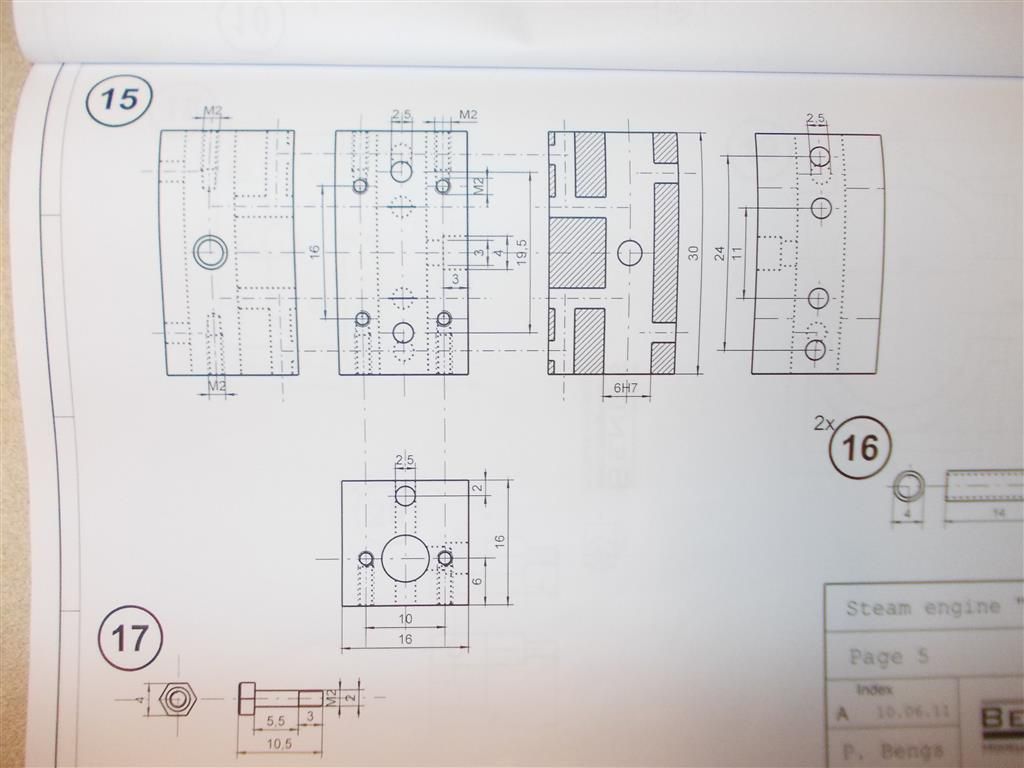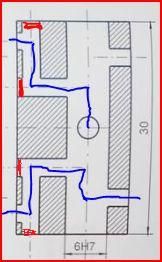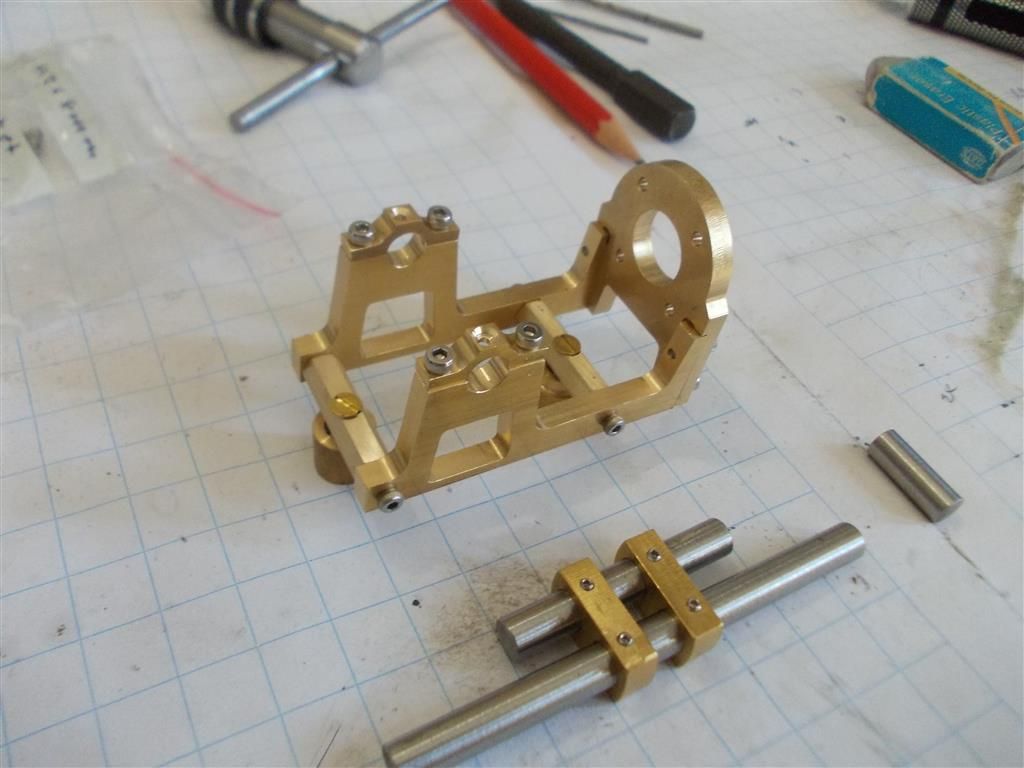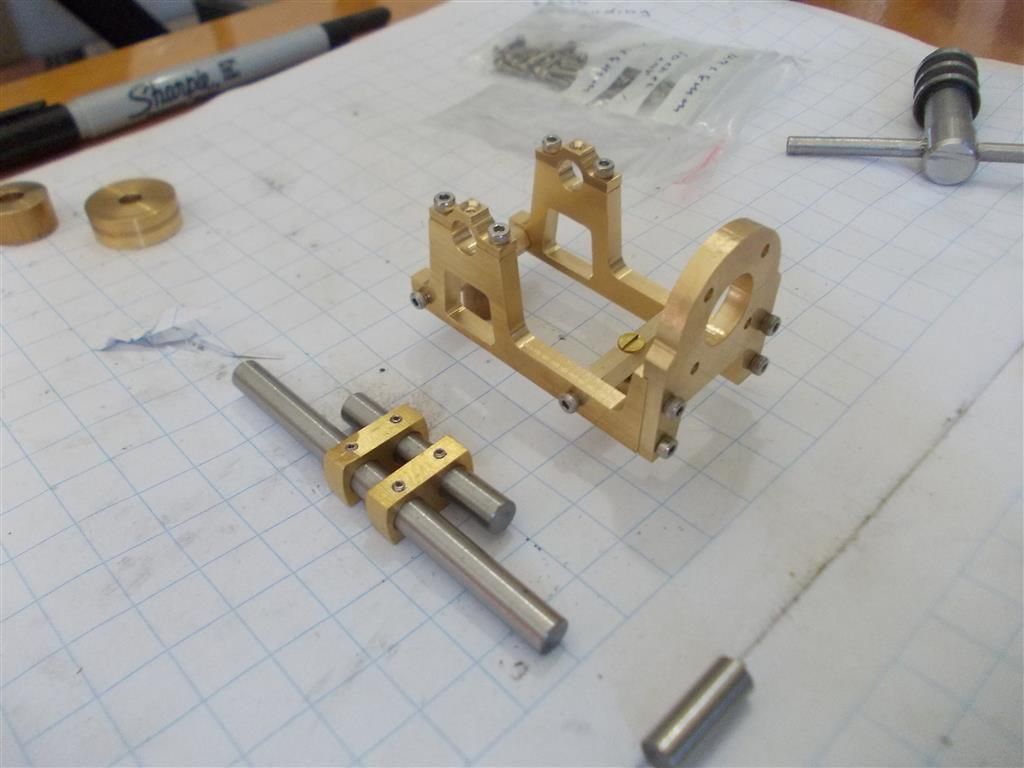The table on the Taig vertical slide is 3 3/4" x 2" and the mounting base 2 1/4" wide by 2", The vertical travel is 1.4" when the feed thread is at the end of the nut so 1.5" is probably ok. With say a 1/2 dia cutter that means that a 1.9" vertical surface can be milled. Probably 2" in practice. I think they could have fitted a longer feed thread but it's a conservative design so leaves plenty of the dovetail guide engaged, About right actually twice it's width. The width that can be milled depends more on the cross slide travel on the lathe. If parts are reasonably rigid it doesn't matter if they are wider than the table.
The only other dimension you may need is that the table projects 3/4" below it's base in the lower position and the lower "jaw" is 1/2" thick. If you or anyone needs others just ask.
This is mine – didn't sell it with the lathe as they can be useful.

and this is how I mounted the plate on the bottom

I just tapped it's fixing holes but it would be easier to simply fix from the top as it's usually mounted. For a Taig there is a slide down brass plate at the rear so that engages with the slide to make it square to the axis of the lathe.
You have a T Slot that attaches the compound slide so could mount it on a plate and hold it in place with that – 2 T nuts. I've taken the shot with the table right down so that it projects past the base – it's important to allow that to happen otherwise height is lost.
If you do it there will be a need to do some sums to get the max possible travel and that may set how thick the mounting plate needs to be. You may find that it needs to be offset from the T slot to the centre of the lathe so the fixings into it are always in sight or they might turn out to have to be under it. No problem just means fitting 2 parts when needed. I don't think it would take long at all to make the parts needed. I don't think that adaptation actually took me an hour to do
The vice on them looks crap but actually works rather well. It holds things tight and it's easy to make custom jaws in it.
Pass on using these on a mini lathe which might be your next step but I think Neil may have given one of these some serious abuse on one without problem. Some one or the other has anyway.
Fact is a lot more things can be done on a lathe that has a vertical slide, more than people might think.
John
–
Edited By Ajohnw on 02/09/2016 15:51:08
chrissie.


